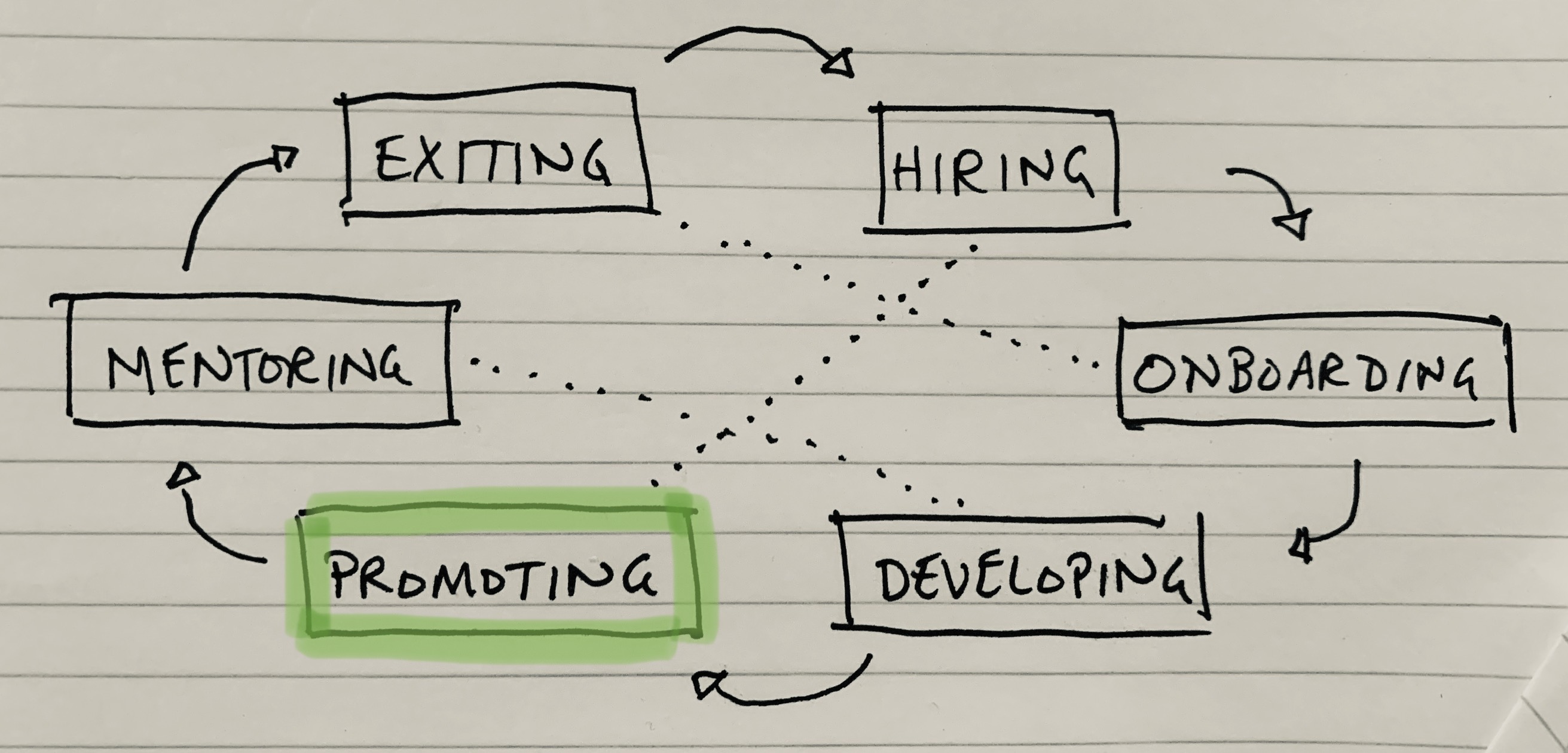
The promoting arena, like hiring, is about finding fit between a role and a soul. To enhance your Growth Culture, make the process consistent, embrace standards and evidence, and provide ample feedback.
Be Consistent
Vijay is a top performer. You've heard another agency is trying to poach him and you're worried they'll succeed.
One day Vijay comes into your office and tells you he's ready for a promotion. He's not. He's great... but he's not ready. But you're worried he'll leave, so you give it to him anyway.
Sound familiar? If so, you know what comes next.
Now Sarah wants a promotion (she's not ready.) Then Chris (not ready either.) Then Janelle (actually is ready.) You find yourself spending 25% of your time dealing with random promotion requests, and everyone's thinking about their status and compensation instead of thinking about the client.
Was Vijay worth all these headaches?
Maybe. Maybe not. That's for you to decide.
But in our experience, random "one-off" promotions are a perfect storm of bias and rash judgement under duress. They rarely lead to the kind of good decisions that have compounding benefits. Usually just the opposite... they create organizational debt that charges painful interest over time.
We recommend you establish a consistent promotion process on a regular cadence. That might be once or twice a year at a time that makes sense for the agency. It might take place at the beginning of each quarter. But people should know when promotions are possible. And there should be a clear and documented process for how to proceed. This helps everyone prepare and it becomes a valuable experience for all, regardless of the outcome.
Embrace Standards And Evidence
Here again, a solid role description is a critical tool. Let's consider Vijay's promotion request. What role does he want? Do you and Vijay understand that role in the same way? What does "good" look like and is there a shared language for discussing this? Having a touchstone, an artifact, as the centerpiece of these discussions is critical.
This is where a shared competency framework is handy. Combined with a job description, you can each articulate Vijay’s mastery of the role. You probably won't discuss every activity to make a promotion decision. But you can have an effective discussion about any activity.
We're all subject to biases of one form or another. It's part of the human condition. To guard against this, use evidence as much as possible during the promotion process. If Vijay followed our recommendations from the Developing arena, he would have a mountain of Reflections, Commits, Journeys, and learning artifacts. This plus job performance metrics should show Vijay's mastery of his current role and his readiness for the role he wants.
Remember, Vijay doesn't want a job. He wants a journey. So, as with hiring, look for some stretch in the new role. Which parts of the role represent an exciting challenge for him? You're not promoting a person so much as you're creating a new trajectory. Will this position be a growth opportunity for the next few years? How will this role advance Vijay's career and push him to be a better professional? If he's over-qualified then he'll get bored, and you'll find yourself right back here in a year or less.
Feedback Is A Gift
Not everyone is ready for the promotion they want, as was the case with Vijay. So tell him why. Be specific.
If you have trouble giving feedback, keep repeating this mantra: feedback is a gift. Deliver this gift with kindness. But don't withhold the truth to protect someone's feelings. It's demoralizing and a bit of an insult. Give your people the straight dope.
Good feedback is energizing. It sets the tone for a Growth Culture. Each promotion is chance to define the standards of excellence. Each promotion is a chance to create more self-awareness. This is how you strengthen resolve and create psychological safety. It's contagious. People talk about it with their teammates, their family, and their friends. This is how word spreads that your agency creates elite professionals. And that's a great way to win the war for talent.